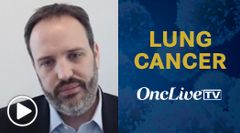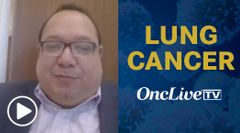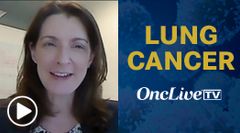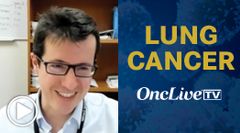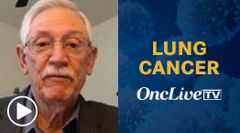
Dr. Gandara on Developments in HER2-Targeted Therapies in NSCLC
David R. Gandara, MD, discusses recent developments in HER2-targeted therapies as a treatment for patients with non-small cell lung cancer.
Episodes in this series

David R. Gandara, MD, director,Thoracic Oncology Program, professor, senior advisor to the director, University of California Davis Comprehensive Cancer Center, discusses recent developments in HER2-targeted therapies as a treatment for patients with non-small cell lung cancer (NSCLC).
While many patients with NSCLC have overexpression of HER2, some also have a driver oncogene associated with a HER2 mutation, particularly a HER2 exon 20 insertion mutation, according to Gandara. Currently, several therapies are in development to target this mutation, such as ado-trastuzumab emtansine (T-DM1; Kadcyla), Gandara says. The agent, which is currently FDA approved to treat patients with HER2-positive breast cancer, is being examined in HER2-mutant and HER2-overexpressing NSCLC and has yielded response rates of over 40% in patients with HER2-mutant disease, Gandara explains.
More recently, fam-trastuzumab deruxtecan-nxki (Enhertu) also demonstrated favorable outcomes in this patient population and could potentially be even more active compared with T-DM1, Gandara says. The agent elicitedresponse rates over 60% for patients with HER2-mutant disease, with a progression-free survival of more than 1 year, Gandara adds. As such, these developments are very exciting, Gandara concludes.


